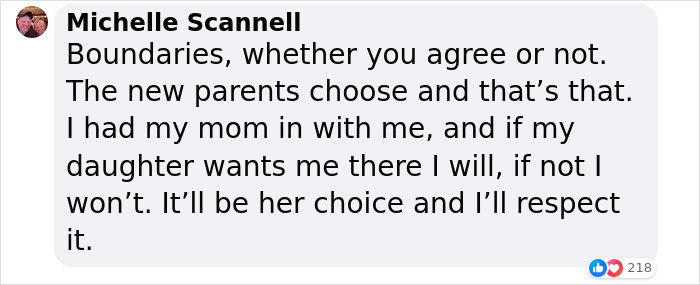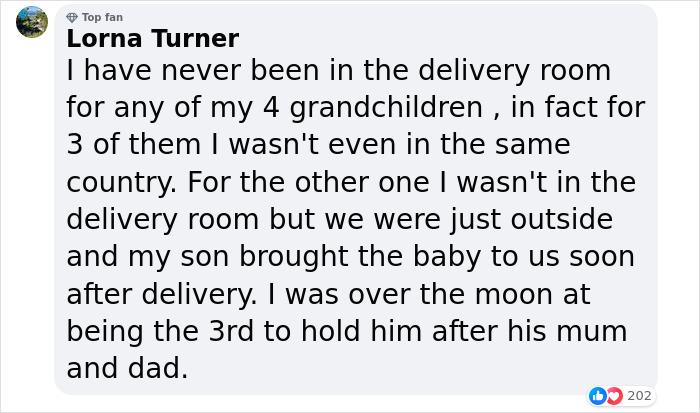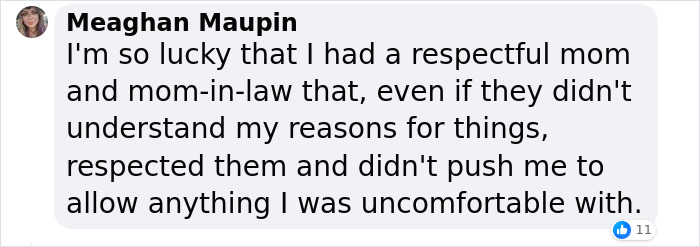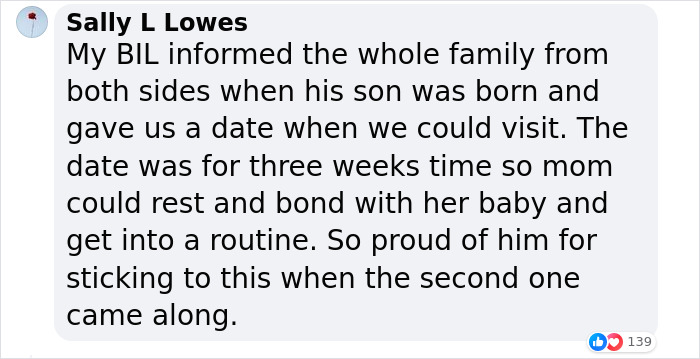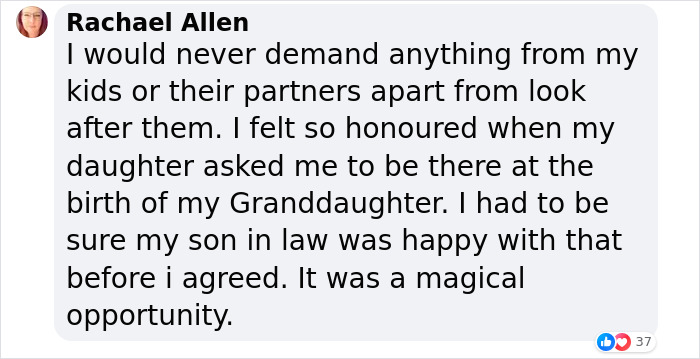Welcoming a new life into this world is a magical moment and undoubtedly a joy not only to the parents, but to the extended family, too. Be that as it may, extended family being in the delivery room for said magical moment might not be the best idea.
A certified breastfeeding specialist and the person behind the ‘Teaching Motherhood’ Instagram account, Anna, has sparked a debate on who should be in the delivery room, after she shared a thread of messages between a mom-to-be and her mother-in-law. The messages showed that the MIL was hoping to not only be there during childbirth but to also be the first one to hold the baby, which encouraged the netizens to share their opinions on whether or not she should be allowed to.
Bored Panda got in touch with Anna and she was kind enough to answer a few of our questions and discuss her views on who should support the expecting mother in the delivery room. You will find her thoughts in the text below.
Deciding who should be in the delivery room during childbirth is a highly personal matter
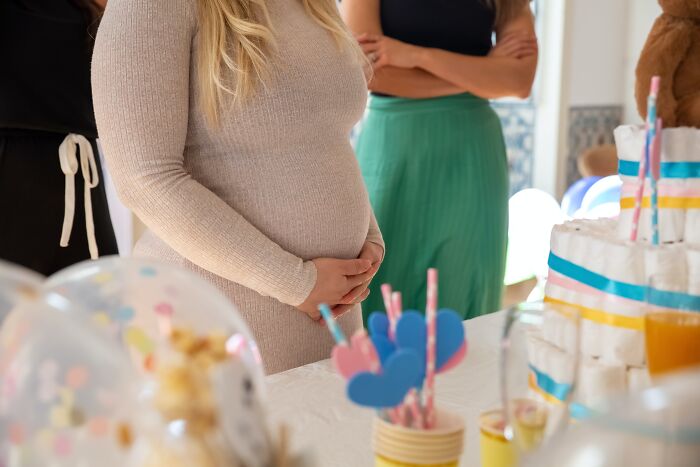
In addition to being in the delivery room, this mother-in-law wanted to be the first one to hold the baby


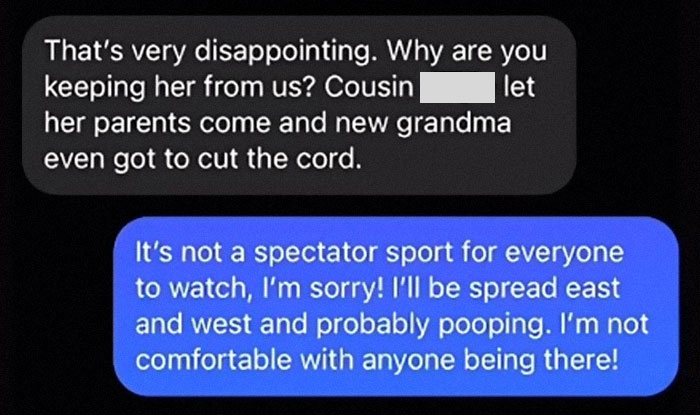
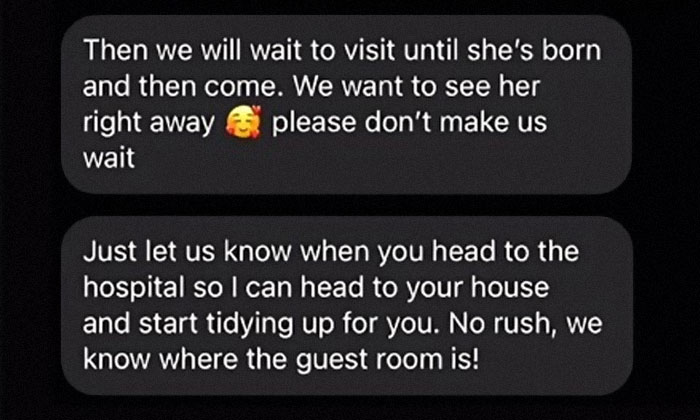
A certified breastfeeding specialist criticized the visitors who felt the need to “claw the new baby away from mom and dad”

Not every expectant mother wants her partner to be in the delivery room, not to mention her mother-in-law
A mom of three herself, Anna believes that it’s up to the expecting mother to decide who she wants to be in the delivery room. “A mom should have whoever she’s comfortable with having,” she told Bored Panda in a recent interview. “Some of us just want our spouse, some of us want to be alone, some of us want our mothers; other people have no right to invite themselves or assume that they’re allowed to be there.”
Anna is far from the only one with such sentiments in regards to visitors during childbirth. YouGov research found that while the majority of soon-to-be-mothers—four in five of them, to be exact—wish for the dad to be around, far fewer of them want other relatives there, too. Mothers seem to be an exception, as roughly a third of expectants want them by their side; as for their mothers-in-law, only 7% seem to have a relationship that’s so good, they would like their MIL to be in the delivery room. (The number drops to 1% for fathers-in-law.)
“This is one of the single most vulnerable moments of our lives and something that is truly not a spectator sport for everyone to watch,” Anna emphasized. “Oftentimes during labor we are very close to naked, pooping while pushing, and in pain. The grandmother ‘wanting to see the grandbaby’ does not matter at that moment.
“I believe that a lot of these grandmas or other relatives asking to be present during the birth are just being selfish, if they’re the ones who invited themselves,” the woman added.

A welcome and trusted labor companion can provide much-needed support for the mom-to-be
According to YouGov, the guest list to the delivery room seemingly depends on the age of the expectant mother; it’s typically the younger ones who want more of their family around. Likely related to the fact that it wasn’t that common for men to be present during childbirth back in the day, representatives of different generations seem to have varying views on who should witness the birth of the baby.
Take dad participation, for instance. Respondents were asked if their father was present when they entered this world and out of those aged 18 to 29, 43% said yes versus 24% who said no. The situation was similar with people between the ages of 30 and 44, 31% of whom said their father was present vs 26% whose fathers weren’t. But things took a turn with the age group of 45 to 64, the majority of which—66% vs 10%—said their dads were left behind closed doors; same with those aged 75 and older (73% vs 6%).
Be it the father of the child, the expectant’s mother or even her mother-in-law in some cases, having a trusted—and most importantly, welcome—companion during childbirth can benefit the soon-to-be mom. The World Health Organization points out that a labor companion plays a number of roles in supporting women, from providing practical, informational, and emotional support, to advocating for them if need be or building confidence and reassuring them.
The support from a companion seems to be one of the main components of what matters to women the most in regards to childbirth—having a positive experience that fulfills or exceeds their beliefs and expectations. Research suggests that that entails “giving birth to a healthy baby in a clinically and psychologically safe environment with practical and emotional support from birth companions, and competent, reassuring, kind clinical staff.”
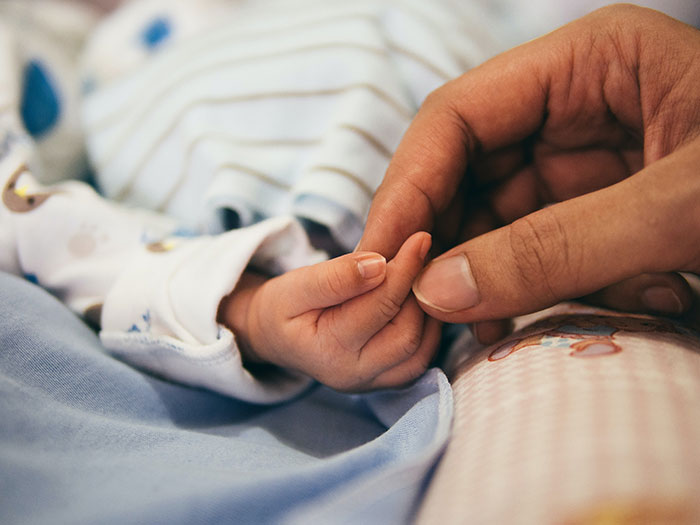
Image credits: Aditya Romansa (not the actual photo)
Some relatives can make childbirth an even more difficult task than it already is
The support from loved ones is clearly very important during such an exciting yet stressful time, but so is having space, which is why setting boundaries is crucial. While the mother will likely be happy to share the joy with family and friends at some point, the delivery room might not be the best place or time for that.
According to Anna, the mom-to-be asking someone to be there for her for support and them inviting themselves in are two completely different scenarios. “Saying ‘I want to be there for the birth and hold the baby or cut the cord’ is really pushing boundaries and clearly putting grandma’s wants and needs above the new mom.”
To make matters worse, some relatives are not easy to bear on a good day, not to mention while in pain with your legs up in stirrups. “I can only speak for myself here, but some of my family members just give me anxiety,” Anna shared, pointing out that they might even judge you for not doing something their way.
“It was ‘suggested’ to me that the epidural is ‘so bad for you and will give you life long problems’ and that the relative didn’t have one for any of her three kids and ‘was just fine’. Simple things like that can instill self doubt and aren’t good for a new mom.”
People in the comments shared their views on similar situations

